Women, Leadership, and Parity
Interview with Julie Crosby
With all of the conversations about gender parity, I have been thinking a lot about women and leadership and the particular problems that pertain to women at the top. Then I heard news of Julie Crosby’s departure from Women’s Project Theater under a cloak of secrecy and rumors. It felt important to me in this moment of heightened awareness of the role of women in our profession, and amidst the swirling gossip around what happened, to hear from Julie about her work over the last nine years. And so I asked Julie Crosby if she would sit down with me and talk about leadership and gender parity and Women’s Project Theater in the hope of bringing to light the person and her thoughts about these important issues.
P. Carl: The first question I want to ask you is about women in leadership, and if you could talk a little bit about what drove you to lead Women’s Project Theater? I know you came as an outsider to the not-for-profit theatre, and then took on an organization with a very specific mission. I’d love to hear what drew you to the job in the first place.
Julie: In many ways, everything I had been doing in my career had been sort of marshaling me to that moment. I finished my PhD at Columbia in 2002, and my dissertation was titled Divas of the Dark Ages: Women and Early Medieval Drama. I had read this deeply inflammatory—to me—thing in one of those academic tomes about how Hrosvita’s plays were just these exercises and she would have never performed them, and how they should just be ignored. They were never allowed to enter into the canon, such as it was, of medieval drama. They were never taken seriously.
Hrosvita of Gandersheim was just a remarkable woman. I started diving into all of these medieval plays from that period. You also have Hildegard at the other end, but then you have all these unattributed plays from that period that are really fascinating—how women are presented in them and to my mind you could certainly argue that they were written by a woman. And why not, since we already had evidence of Hrosvita writing, and later Hildegard. This wasn’t something that was taboo for them to be doing while the men were all fighting their wars. I became really interested in restoring these women to some sort of light. I think that has been true of my entire career, where even when I have been working in the commercial theatre, the projects that drew me were frankly never big commercial hits. They were people and stories that I felt had been taken out of any sort of commercial contention, including Eve Ensler’s The Good Body, and I’ve worked for many years with Laurie Anderson, who’s just a genius, and the stories she’s telling are stories that are not structured in the traditional way you expect to be told a story.
That was my first mode of operating—to say we’ve got to shore up support, and we’ve got to get funders back, and we’ve got to figure out a way to get the resources that women artists deserve in this business.
I went into Women’s Project really excited to work with artists who I thought had not had opportunities. The business side of me looked at their finances and said, “You’ve got to be kidding me.” In 2005, the place was in very dire financial straits. I didn’t go in jaunty jolly so to speak, thinking this was going to be a snap. I went in thinking, “Dear Lord, these finances have to be rescued.” That was my first mode of operating—to say we’ve got to shore up support, and we’ve got to get funders back, and we’ve got to figure out a way to get the resources that women artists deserve in this business.
Carl: You went in on the managerial side, and then there was a moment of transition to the artistic side. When was that shift made? I know there was some controversy surrounding adding the “artistic” to your title, if I’ve read correctly.
Julie: There’s a history. Yes, I came in as the managing director, and Loretta Greco was the producing artistic director, and a few short months after I had been there—I started in late October 2005, and Loretta and the board parted ways in June 2006. I hadn’t been there for long, and the difficulty was the board at that time made this decision for whatever reasons—I wasn’t at the meeting, I was told about it after the fact—and it was a strange thing. I said, “Well, now what? Are we hiring an artistic director? What are we doing?” And then I said, “Okay fine. I’m going to start programming, and you need to give me the title that will give me the authority to negotiate those contracts and make those deals with artists." So they did. There wasn’t really a plan for how they were going to move forward after the board and Loretta parted ways, so really I just stepped up in order to keep the organization moving forward.
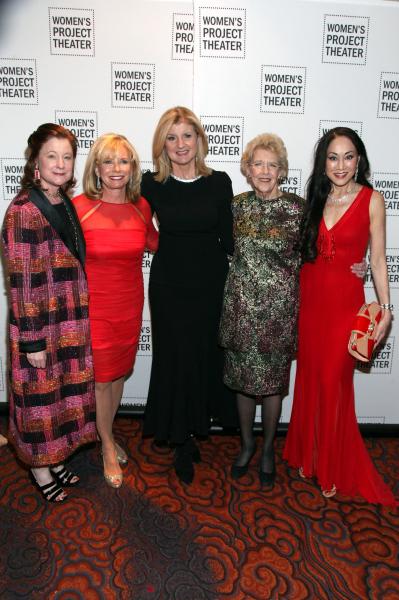
Arianna Huffington, Joan Vail Thorne, Lucia
Hwong-Gordon at the Women'sProject Theater's
Women of Achievement Gala.
Photo taken from http://www.broadwayworld.com
Carl: I heard the news of your—I would call it quiet-but-not-so-quiet departure—and I thought immediately of the Jill Abramson situation at The New York Times. Controversy seems so naturally to surround women in power, and the fact that there seem to be expectations of how women lead and behave that are different from the expectations we have of men. We certainly seem to frown on behaviors by women that we might applaud if a man engaged in the same behavior. I would love to hear your more general thoughts on what are the expectations of women in leadership positions? Have you felt those acutely in your role? Any thoughts you’ve had on that over these last nine years of leadership?
Julie: Women in leadership, it’s tricky. And the Jill Abramson thing, believe me, I was sort of rapt, because I was going through some strange accusations, which you know, come up all the time. I do think there’s a reflex to judge women in positions of power more harshly—or more instantaneously—let me put it that way. The benefit of the doubt will be given to a guy, where it’s not necessarily given to the woman. I think we see it over and over, so when something happens where the full story isn’t out there, Jill Abramson for example, it becomes these gendered allegations: she pushy, she’s too aggressive. Whereas I think had it been a man who had been let go after a couple of years on the job, we would have said, “Well, let’s all pause and hear what he has to say.” There would have been a step back, and “Look at all these good things that happened during his tenure,” as opposed to “Oh yeah, I heard she was really pushy and incredibly impossible.” We see it with Hillary Clinton as well—she’s deeply unlikable. It’s judging her personality, or her perceived personality, as opposed to looking at the track record of that person. The very large, generalized statement about the difference between how we look at male and female leaders is: we look at men based on what they’ve done, and we look at women based on what we perceive their personalities to be.
Carl: I appreciate that, and it’s one of the reasons I really wanted to get the chance to talk to you about what you have done, and to talk a little about your work at Women’s Project. Sometimes we can get so interested in the blood sport of the controversy that we forget about the work that people have accomplished, as you say, over almost a decade of work. I wonder if you might talk about the challenges in those nine years about getting women’s voices on stage. We’ve heard a lot in the last few months about how there aren’t enough good plays by women; was that your experience, or were there issues specific to funding for women’s work, or creating an audience for women’s work? How did you see those things unfold in your tenure?
Julie: With any theatre institution, there are challenges. Since 2008, fundraising has been incredibly difficult—the most trying I’ve experienced in my thirty years in this business. I think the terrain has been difficult for everyone and I think it’s important to acknowledge that. I think what was different at Women’s Project were some of the hurdles, in addition to all the normal stuff everyone is challenged by when fundraising for the arts—part of the challenge is because the name of the theatre is Women’s Project. It’s a very retro name. In 1978 when the organization was founded, it literally was a project of the American Place Theatre—it was a program as opposed to its own institution. I love the legacy of that retro name, but it’s a marketing challenge because it’s seen more as a charitable act—let’s do a good deed by supporting this organization—as opposed to people saying “Oh my God, I love the work of that organization, I love the artists they’re producing.” I think a big part of my early years at Women’s Project was about making sure the work came first. That the work was out there as respectable, exciting, challenging, and intellectually rigorous on its own, as opposed to having it weirdly attached to the enterprise of advancing women in a business where they lack opportunity. Look at the work. The work is good. Come see it. That’s tricky. Again, you have Women’s Project, and there was an assumption—I think we got over it—but certainly when I got in there, the assumption was it was going to be about women’s issues. I don’t know anymore what a woman’s issue is, but I deliberately have always programmed against it. In my years there, I resisted anything that was too on the nose about women; for example, there are a number of really fantastic breast cancer plays that I would not produce. Those plays that were seen as traditional women’s issue plays, I avoided like the plague in an effort to make it clear that women are writing about immigration, religious zealotry, and the world at large in the same way that men are tackling the big issues. Women are also tackling the big issues. I kept my programming on those big or universal issues that women were going after.
Carl: There’s a sense that women’s work isn’t as muscular or that it isn’t tackling the big issues, and I wonder if you could speculate about what is at the heart of our parity problem in the field? Why does it continue to be a struggle to get women’s voices on stage?
Julie: I don’t think it’s one thing, because I think were it any one thing, we all would have collectively—men and women of this community—solved the problem at this point. I think it’s just embedded in so many different layers. I think there is an overall cultural bias that takes us back to the leadership question and of female directors, who get, “Oh, it’s fine if you’re doing a scrappy production downtown that has a five dollar budget, but I don’t know if we can give them the budget of a Broadway show. I don’t know if they can handle it.” There are so many different pieces to this issue. One is the cultural bias. I think women sometimes do a disservice to themselves in the way they pitch themselves. We worked a lot in the Lab at Women’s Project on that very item, saying, “You’re in an elevator with Oskar Eustis, what is your fifteen-second pitch? How are you going to present yourself?” I’m speaking generally, but I thought often enough that there’s that modesty—we’re taught from very early on to be modest and cross your legs and be quiet. Don’t brag about your work. That’s how I think even the most confident of women sometimes feel—like they’re bragging about their work if they turn the subject to themselves and what they’re doing. It’s getting over that. I don’t think there’s a cabal of men. I know many male artistic directors, as we all do, and for the most part, I like them a great deal. I think they’re very open-minded and smart men. They’re not sitting around saying, “Let’s deliberately keep the women out.” I think it’s about building those relationships and making sure women are as confident about building them for themselves as they can be. They have to be comfortable networking. I used to think networking sounded like the biggest bore in the world, but put any label you want on it, what you’re saying is you have to go out and build relationships in the field. The more we can get women to be confident and the more we can get them access to build those relationships in places like the lab, I think the more quickly we will overcome this multi-headed beast of a problem.
Carl: What was your reaction to the Kilroys creating their list of women plays? The level of excitement around it was even surprising to me. In what way has that advanced the cause in your mind? How did you perceive that intervention?
Julie: I thought it was fantastic. I think any effort that puts this issue back in the front of people’s minds is fantastic. Whenever I would go speak on a panel, I would get, “Can you send me a list of fifteen plays? I’m looking for this.” The fact that there is some sort of list out there—regardless of how it’s been curated—where people are saying I want to read more plays by women, how can that not help to advance the cause? Again, every curated season, every curated list of anything, some people are going to be left out that are worthy of being on it. Hopefully, there will be another list next year from the Kilroys, saying “And here are another forty-five plays that you should be reading.” People say they’re not getting those plays—now they know who to ask. Now they have at least a place to start in terms of reading.
I’m speaking generally, but I thought often enough that there’s that modesty—we’re taught from very early on to be modest and cross your legs and be quiet. Don’t brag about your work. That’s how I think even the most confident of women sometimes feel—like they’re bragging about their work if they turn the subject to themselves and what they’re doing.
Carl: As you consider the passage of nine years, have women gained ground in that time? Has it become easier to talk about that question of women’s voices on stage?
Julie: In the last three or four years, I think the conversation has definitely gotten more common. It’s okay to have this conversation now, where I didn’t feel it was okay to have this conversation before. I felt it just made people uncomfortable. They came to the conversation unprepared as though they had never thought about it before, and I don’t think that’s true anymore. There’s a far bigger awareness that this is a problem. I just don’t think there’s any collective understanding of how to change it overnight, and redress the problem immediately. But I do think women are making strides. I get a little cautious, because I will say, we have seen the rise in the statistics before. I think 2009 to 2010 was a really great year for women, at least in New York City. There was this huge rise of plays written and directed by women in the Off-Broadway community, and in the next year, there was this precipitous decline because it was sort of like, “oh, we did that!” Check mark. That’s done, so now we can go back to programming what we’re very comfortable programming, and work with people that we’re already comfortable working with. I do guard against getting too overly optimistic about how things are changing, because I think vigilance is required until we see that it’s consistent across the nation that women are getting a fair shot and an equal opportunity.
Carl: In your legacy at Women’s Project, what are you most proud of?
Julie: Hands down, the Lab. The Lab has just been such a joy for me. When I went into Women’s Project, even as managing director, I didn’t know what the Lab was, and it was a little more loosely structured. The first thing I did was add producers to the mix of playwrights and directors, because I kept thinking, “We can only produce three shows a year on our main stage. How are we going to get all these other women in this Lab, getting their work up in front of audiences?” The Producer’s Lab has just had an extraordinary run, and I believe it’s the only program in the nation that puts directors, writers, and producers in a room together. What that does, and we’ve seen it work over and over and over again, is that it forms these relationships in this two-year residency, and they go off and collaborate together, these producers, writers, and directors on projects far, far beyond WP’s walls. It’s been really exciting to watch that network succeed so well. The Lab has been awesome. They’re just fierce. We’re all going to be working for them very soon.
Carl: We did a nice couple of stories on HowlRound about some of the collaborations in the Lab, maybe a year or so ago.
Julie: Some of the producers who have come out of there—I’m just watching them ascend. Maria Goyanes was one of the first people to come into the Producer’s Lab, and she later hired Stephanie Ybarra, who came out of the Producer’s Lab, and Meropi Peponides was there for a while. I love seeing that the producing department at The Public is filled with WP alum; it’s just super satisfying. These are the women who hopefully are going to be running all of these institutions in another five years. There’s got to be some turnover at some point.
Carl: Those are all women I’d be happy to work for. Really great people. I know you haven’t had a minute to think about what’s next, but anything you want to say about what you’ve been thinking about these last few days since things unfolded? Or anything that’s been on your mind as we close off the interview?
Julie: It just circles back to what we’ve been talking about; how do you address persistent systemic problems in this industry? One of the things I’ve been playing around with through the Lab is how do you get more nationwide attention on this subject? That is one of the reasons I liked what the Kilroys were doing—it didn’t come out of New York. It’s making the issue larger than the city and its concerns. I’ve been playing with a lot of ideas about how do you ratchet up the attention? How do you get theatres in the heartland and in the south and across the nation and even internationally, how do you incentivize and help them to bring forward the work of women onto their stages? I’ve had a few ideas percolating about how to make that happen and exploring how that might best roll out.


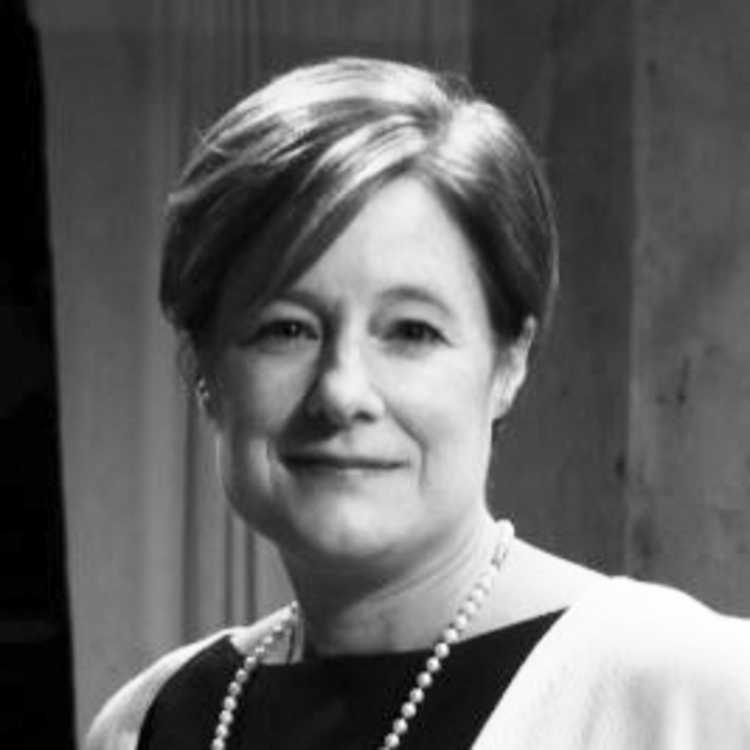
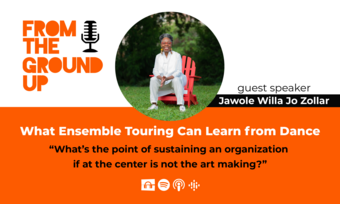


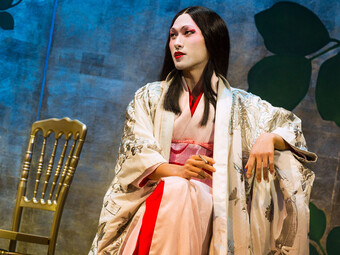


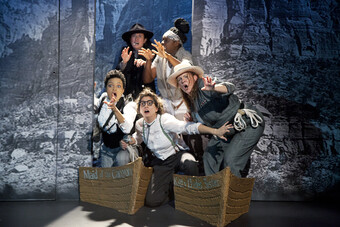


Comments
The article is just the start of the conversation—we want to know what you think about this subject, too! HowlRound is a space for knowledge-sharing, and we welcome spirited, thoughtful, and on-topic dialogue. Find our full comments policy here
One of my favorite HowlRound articles in a long long time! Okay, so I have a new favorite every week. But still. I cheer you, Julie Crosby! Hopefully we cross paths in this one-horse theater town of ours so I can shake your hand properly.
Great interview. The interview effected me the most when Julie spoke about how a woman is more prone to be judged by her 'personality.' I can't tell you how many hours I have thought about how women are judged as being too pushy, too open, etc etc. and dare I say, yes, this happens EVEN AT A PLACE LIKE WP! How do I know this? Because I was judged in a similar manner while at that organization and haven't been able to get it out of my head since. Julie, I'm going to write you about thist. It was truly great reading this and judging from Julie's words, It sounds like she still has plenty of fire in her yet which is great! Best to you Julie!
So, I wrote the above on my phone and it asked for a picture. I didn't know that the picture was going in the body of the post. Sorry for the large photo!
Thank you both for this frank assessment of the current status of and your vision for women in our industry. Honest, open dialogue will go a long way towards creating a path forward, and your leadership on the topic is very much appreciated.
Julie and Polly, I read this discussion this morning and, although I have never met either of you, the interview made me feel that I got to know and relish a true slice of you both. I so appreciate interviews like this, and I thought readers of the conversation might want to take a look at the battle that Elizabeth Schafer – who I believe is the world's greatest living theatre historian – waged for four years to achieve gender parity for academic staff in England. Somehow she managed, amidst all of this, to continue to publish at an incredible rate. But one of the problems of these fundamental issues of self-value - both 'felt' within one's own artistic engine, and 'donated' from the outside – is that of course they (the inside and the outside) are related. Women all-too-often get frozen in positions where they're forced to counter accusations of being 'too pushy', 'too aggressive,' instead of devoting their energies to the work that they passionately want to move on with. This is the deep sadness of it - and it makes me think that perhaps Shakespeare intuitively 'got' this issue 400 years ago when he simply buried women like Hermione for 16 years once they became the subject of public contention. This is what still often happens to women - they get frozen in the retaliatory postion, and may as well be buried.
Schafer piece: http://www.timeshighereduca...
I just have a couple of additions to your comment on the WT Lab: the Ground Floor at Berkeley Rep is a very exciting innovation that puts writers, directors and producers in the same room, run by dynamo Madelaine Oldham. Also there is a Black Swan Lab at Oregon Shakespeare Festival each year where the incredible Lue Douthit organizes week-long reaadings/workshops on new plays OR on the very kinds of plays that you were talking about early in this interview - plays that might have been written in, say, the 16th century as women's 'closet dramas,' going down in history as 'not intended for performance', undoubtedly BECAUSE they were written by women in a time when women/performance was unthinkable. So these are two great resources I know of at two leading West Coast companies.
Lastly, for many years I've worked a lot on King Lear, wondering amongst other things about how to ameliorate, or reframe, the sexist rampages of the world's most famous literary octagenarian. I am still wondering, and what's beautiful about contemporary performance is that it gives me the opportunity to see this question addressed again and again and again. (eg the OSF Lear last year - the actress playing Cordelia was so naturally, wonderfully transgressive, and I still think about her.) Excuse the length of this post - I just kept on rolling.
The WP Lab changed my life, and my career. I was there from 2006-2008, and not only did I meet some of the collaborators I still work with today, and was surrounded by brilliant female theater artists; but it forged a path for my introduction to New York theaters and professionals and allowed for my entrance into the community. I have watched the lab develop over the years, giving emerging women playwrights production opportunities (supported by an OB Theater) and a publication (!) during their tenure, and there is truly nothing else like it out there. Kudos to you, Julie. You've made a lasting impact on this artist: and, I am sure, many many more.
I so appreciated this interview on every level. The issues are complex and for me, as an Artistic Director of theatre that is known for producing women and hiring women across the board- I applaud the tone and intention expressed here.
Well, for starters, I was in Oskar Eustice's office when he said, "I can't do your play ("Prophecy"); it's too risky. I couldn't do "Stuff Happens" anymore." Not only did I pitch it, but we presented a fabulous reading and he loved the reading. So, when women write about war, and being against the war du jour, the suicide of an Iraq war Vet, the link between Viet Nam and Iraq wars, Jews and Arabs, the bombing of Gaza, or Lebanon, the U.S. torture program, and, also, as it turns out, climate change, and tell stories about infidelity, abortion, incest, sexual passion, and so many other BIG SUBJECTS...it has NOTHING to do with confidence...the braver, bolder, better women are the more we will be hated, censored and despised. It has everything to do sexism, with boards of directors that manage theaters, with the general war against women that is going on. My favorite example these days is Emily Dickinson. She simply knew she had to keep her work to herself or stop doing it. If she had gained the confidence to schmooze with the literati of her day, she would have been completely ruined. She was invited. She declined. If she had wanted to make it, she would have had to destroy her art. They were already changing her grammar for her. And, by the way, I don't think ANY woman ought to apply as Artistic Director of the Women's Project. Can we try to stand in solidarity for once?
Actually, I tried to erase the above comment because I thought it was too frank. But instead, my name was erased and I do not believe in anonymous posts. So, I admit that I wrote the words above.